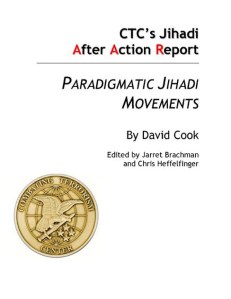In 2005, veteran jihadi thinker, propagandist, and historian Abu Musa`b al-Suri released a study of the jihadi movement entitled The Call for Global Islamic Resistance. In order to better appreciate the jihadi movement’s strategic objectives and mindset, the Combating Terrorism Center invited David Cook, an expert on Islamic history and jihad, to provide deeper background on four of Suri’s identified paradigmatic jihads:
- The Harakat al-Shabiba in Morocco
- The Harakat al-Dawla al-Islamiyya in Algeria
- The Afghani Arabs in Lebanon under Abu `A’isha al Lubnani
- The Islamic Army of Aden Abyan in Yemen
Here are some of the most significant findings from Cook’s survey:
- Yemen is a critical step in the jihadi march towards a global caliphate.
- Suri and others believe that Yemen is ripe for a jihadi revolution because of the country’s proximity to the apostate regimes, and high levels of anti-American sentiment, population growth, and weapons proliferation.
- The Sunni jihadi movement has gained little traction in Lebanon.
- Suri is embarrassed by the fact that few Lebanese jihadis have been involved in the global movement, and by the fact that jihadi groups have found little historical success in waging jihad in Lebanon.
- Jihadi organizations should be global in their thinking but careful to build a broad constituency in their homeland.
- Suri seems to favor those movements that, even if they found little success in reality, had the proper motives and methodology.
- Jihadis should not excommunicate other Muslims.
- Suri argues that the slaughter of civilians by the GIA in Algeria, which was legitimated by excommunicating them, was a colossal strategic error that should never be repeated.
 Skip to content
Skip to content

